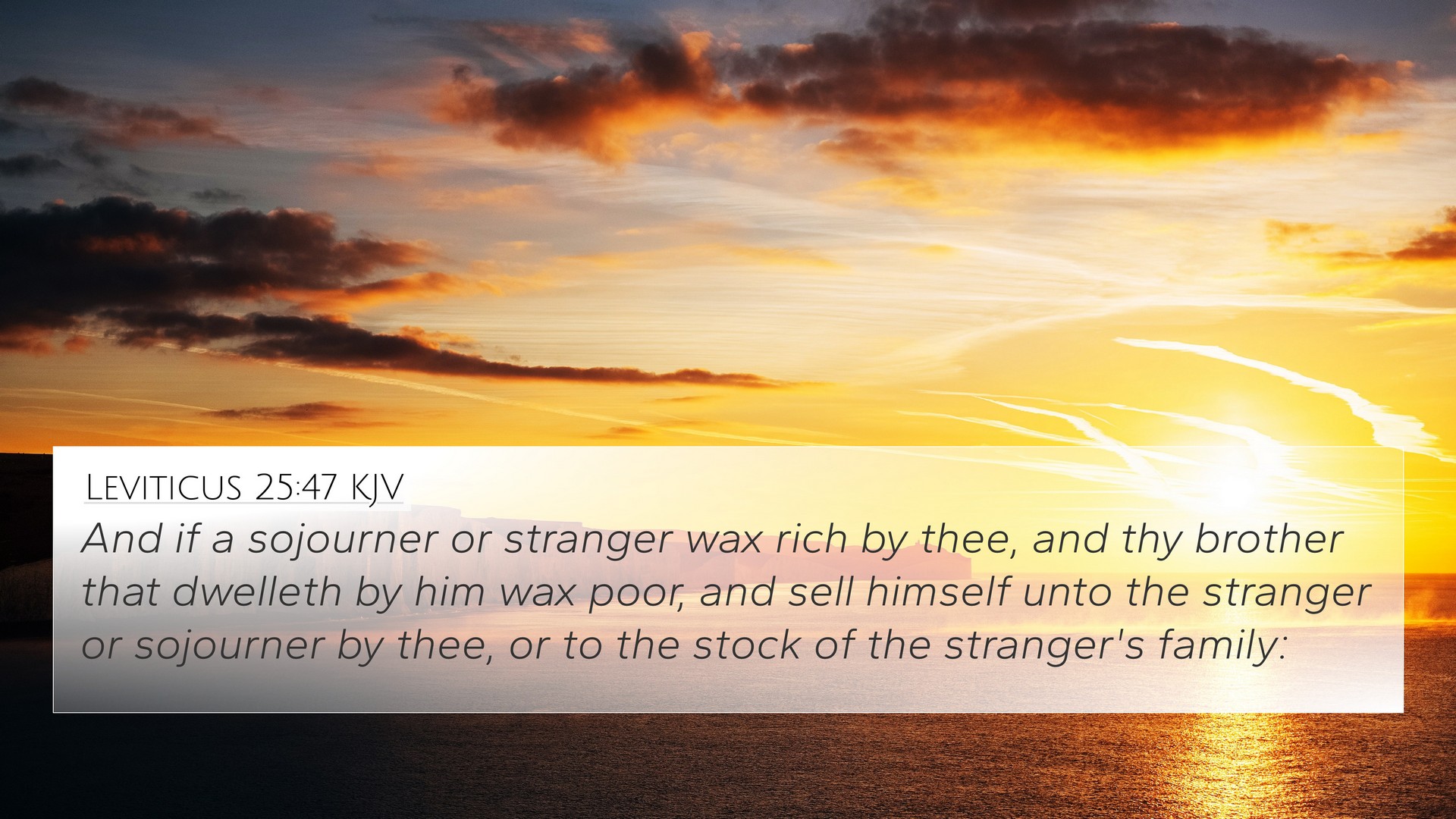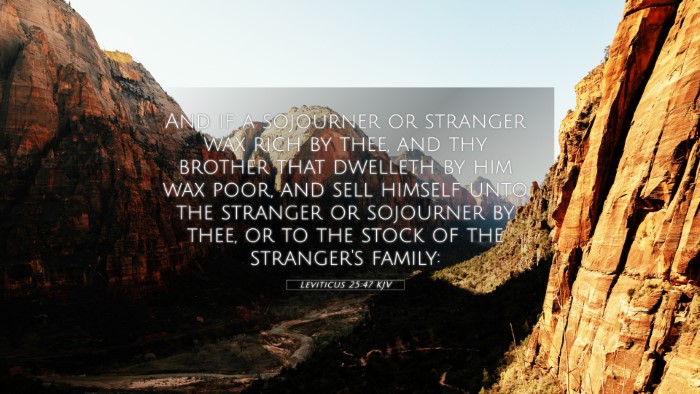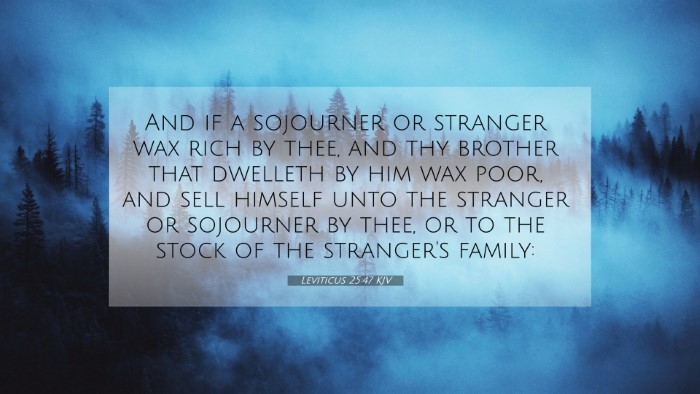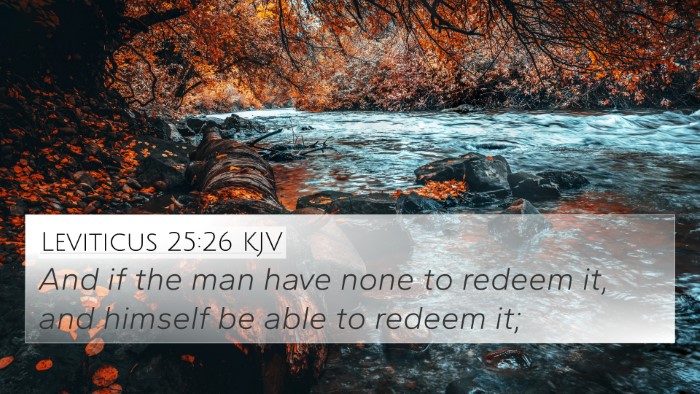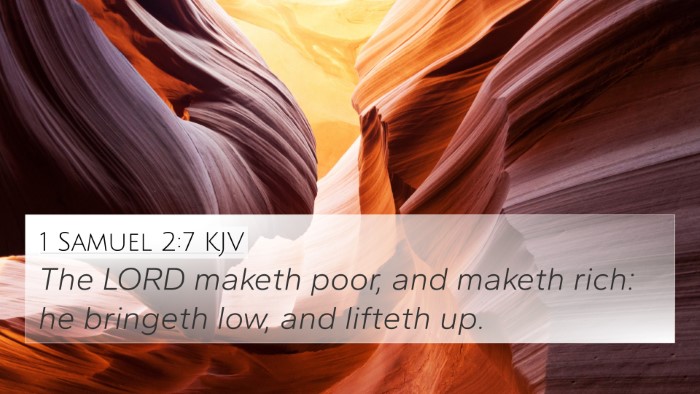Understanding Leviticus 25:47
Leviticus 25:47 states:
"And if a sojourner or stranger wax rich by thee, and thy brother that dwelleth by him wax poor, and sell himself unto the stranger or sojourner by thee, or to the stock of the stranger's family."
Summary of Biblical Context
This verse occurs within the context of the laws regarding the sabbatical year and the Year of Jubilee, emphasizing the welfare of the Israelites regarding economic transactions and societal structure. God provided regulations to ensure justice, compassion, and the restoration of property and freedoms.
Commentary Insights
-
Matthew Henry:
Henry reflects on the importance of community and brotherhood in Israel. This verse signifies not only societal responsibilities but also the acknowledgment of God’s promise to keep His people in a balanced and fair economic state where no one is to exploit another’s hardship.
-
Albert Barnes:
Barnes emphasizes that this verse serves as a reminder of the transient nature of wealth among both the sojourner and the native. The rich are cautioned against wrongdoing in their dealings with the poor, particularly their brethren, reinforcing the moral obligation to uphold justice.
-
Adam Clarke:
Clarke points out that this law is meant to protect the dignity of individuals facing economic hardship. It suggests that rather than becoming enslaved due to poverty, individuals should maintain their rights and be afforded opportunities for redemption and restoration.
Bible Verse Cross-References
- Exodus 21:2-6: Discusses Hebrew servitude and the conditions under which a servant is to be freed.
- Leviticus 25:39-40: Further emphasizes principles of brotherhood and the treatment of fellow Israelites.
- Deuteronomy 15:12-15: Reiterates the laws regarding the release of servitude and the concept of freedom.
- Jeremiah 34:8-17: Illustrates the failure of the people to uphold the Year of Jubilee and release their debtors.
- Luke 4:18-19: Jesus references the Year of Jubilee and the proclamation of freedom, linking it to His Messianic mission.
- Matthew 20:1-16: The parable of the laborers presents principles of grace and fairness in economic labor.
- Galatians 5:13: Paul teaches about the call to serve one another in love, ensuring mutual responsibility among believers.
Thematic Connections
This verse connects deeply with themes of social justice, compassion, and economic ethics in the Bible. It aligns God’s intention for the community to support one another, especially in times of financial distress.
As seekers of deeper understanding engage in Bible cross-referencing, they can explore how this verse reflects:
- The foundational principle of loving one's neighbor (Mark 12:31).
- Providential care over the poor and marginalized (Proverbs 19:17).
- The cyclical nature of debt and release, symbolizing grace (Romans 6:14).
Conclusion and Reflection
Leviticus 25:47 is more than a legal instruction; it encapsulates God's heart for justice and compassion within communities. As we engage in Bible cross-reference studies, this verse serves as a pivotal point for understanding how God desires His people to interact with one another in love and fairness.
Remember that when interpreting Biblical themes and drawing connections, one can further enhance their understanding by using various Bible reference resources and tools for cross-referencing. This will aid in the discovery of linking Bible scriptures that enrich spiritual insights and comprehension.
